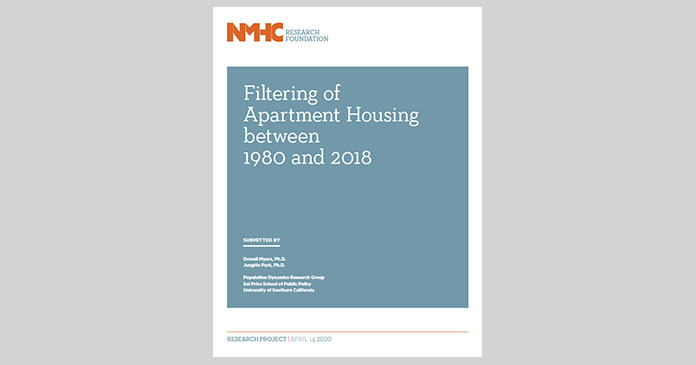The NMHC Research Foundation released a pioneering new study exploring the impact of the filtering process on apartment housing.
A better understanding of the detailed nature of our housing affordability challenges is more important than ever as the COVID-19 pandemic has worsened the finances of millions of Americans which will further exacerbate the shortage of workforce housing that pre-dated the virus.
“The NMHC Research Foundation is committed to producing important, thorough and innovative work,” said Mark Obrinsky, NMHC Chief Economist. “The Filtering of Apartment Housing between 1980 and 2018 study is the first thorough and in-depth analysis of apartment filtering—the aging and obsolescence that produces naturally-occurring affordable rental homes. The authors—Dr. Dowell Myers, professor of policy, planning, and demography in the Sol Price School of Public Policy at USC and Dr. JungHo Park, postdoctoral researcher at the USC Population Dynamics Research Group—make a major contribution to our understanding of this critical process and we expect it to provide significant value not only to the industry, but also to policymakers and researchers.”
The study found that in past decades the substantial flow of new construction, largely targeted to middle- and higher-income groups, enabled the filtering process to operate and create affordable housing opportunities for low-income households. However, following the Great Recession low-income occupancy declined as affordability challenges increased. Importantly, the review determined that a continued stream of new construction, even if it enters in higher price brackets, is important to the success of filtering in providing low-income shelter.
The full report can be found here.












